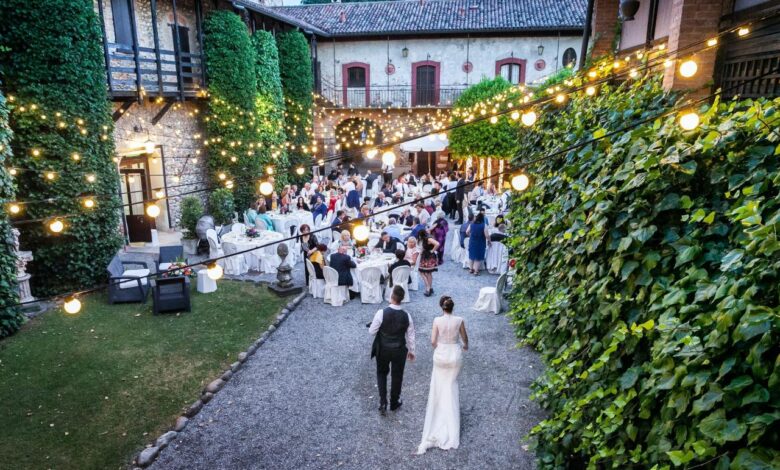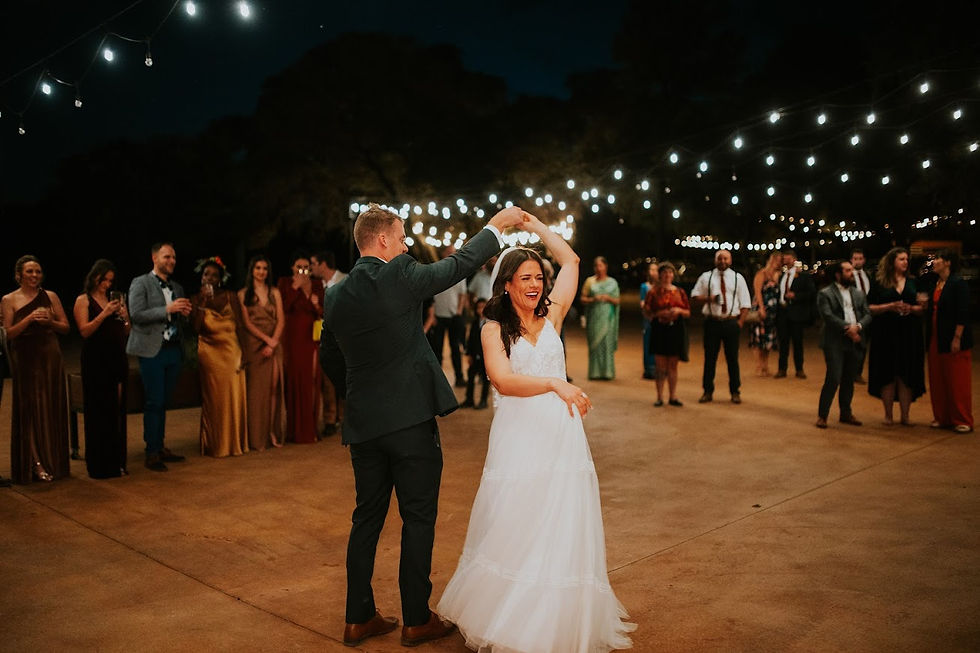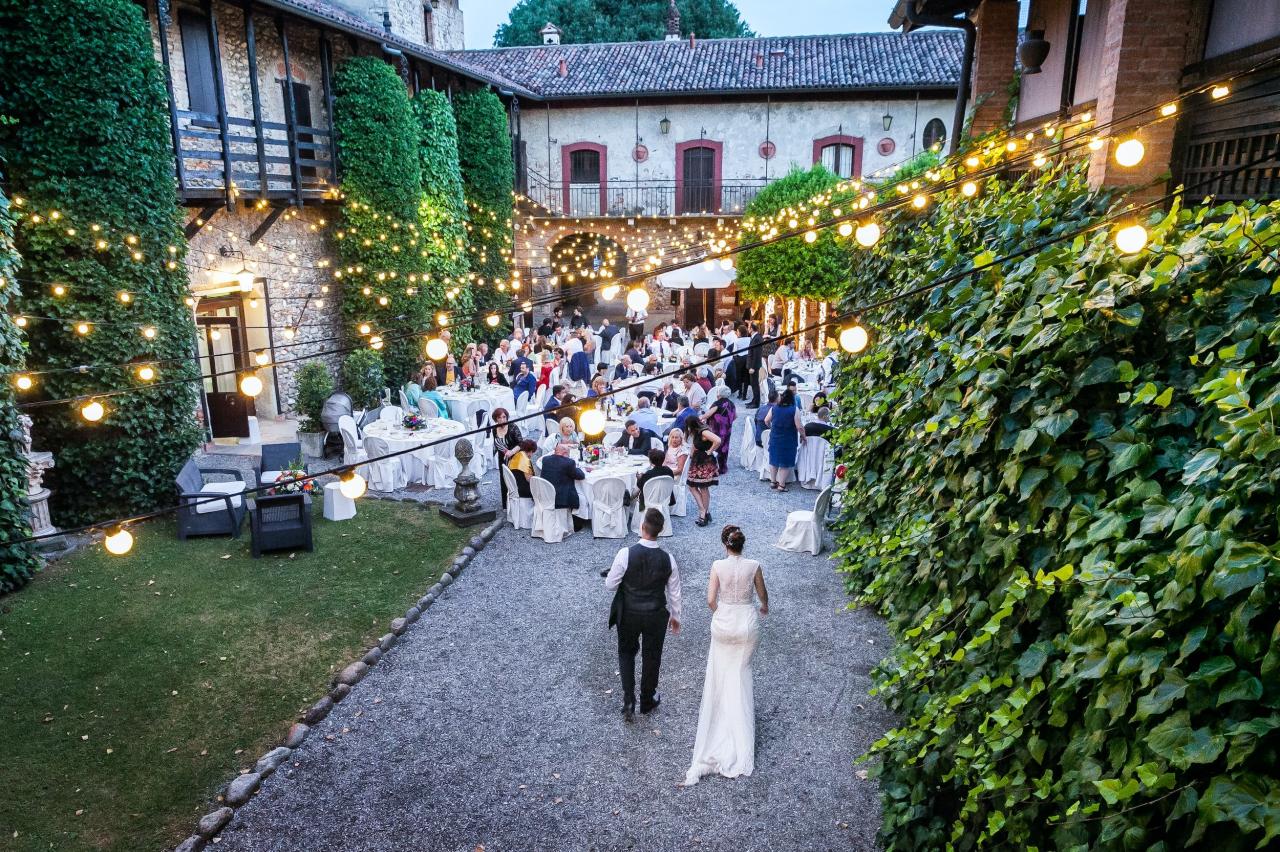
Wedding guest experience tips are crucial for creating a memorable and positive experience for all attendees. From seamless arrival procedures to personalized entertainment options, thoughtful planning ensures every guest feels welcomed and valued. This guide dives into the key aspects of crafting a truly exceptional guest experience, covering everything from practical logistics to emotional touches.
This comprehensive guide covers everything from welcoming guests and managing their check-in to ensuring a variety of engaging activities. It also addresses food and beverage needs, accommodation, communication, transportation, special needs, and even event management. Ultimately, creating a truly personalized experience that caters to diverse guest preferences is key to a successful event.
Guest Arrival and Check-In
Creating a memorable and stress-free experience for wedding guests starts with a well-orchestrated arrival and check-in process. A smooth transition from arrival to their designated accommodations or welcome area sets the tone for the entire celebration. This section will detail various strategies to achieve this seamless transition.A positive first impression is crucial. Guests should feel welcomed and valued from the moment they arrive.
Thoughtful planning and clear communication can significantly impact their overall experience. This includes anticipating potential challenges and having solutions in place.
Arrival Procedures
Effective arrival procedures are key to minimizing delays and maximizing efficiency. Guests should have clear directions, ideally communicated well in advance. Consider multiple entry points to accommodate various transportation options and potential traffic flow issues. Providing clear signage, including directional maps and welcome messages, ensures guests find their way easily.
- Designated Welcome Area: A dedicated area for guests to check in, receive welcome materials, and gather information about the venue. This centralized location can include information desks staffed by welcoming personnel.
- Pre-Arrival Communication: Sending welcome emails with directions and parking information, along with a map or interactive online venue map. Using a website or dedicated mobile app with arrival information and potential issues can help guests be prepared.
- Transportation Options: Clearly communicating details on transportation, such as designated shuttle routes, parking arrangements, and directions to nearby transportation hubs, for those arriving by car, bus, or train.
Personalized Welcome Packages
A personalized welcome package adds a touch of warmth and appreciation to the guest experience. These packages can include small, thoughtful items relevant to the wedding theme or location.
- Example 1 (Coastal Wedding): A reusable water bottle with the couple’s initials, a beach-themed welcome bag with sunscreen, and local maps for exploring the area.
- Example 2 (Rustic Wedding): A welcome basket with local honey, artisanal jams, and a personalized guide to nearby hiking trails.
- Example 3 (Modern City Wedding): A gift card to a local coffee shop or restaurant, a personalized city map, and a QR code for directions to the ceremony and reception.
Check-In Optimization
A streamlined check-in process is essential for minimizing delays and ensuring a smooth transition. Consider using a digital check-in system to avoid long lines and paper-based procedures.
- Digital Check-In System: Utilizing a dedicated app or website for guests to check in electronically. This eliminates the need for physical check-in forms and allows for real-time guest arrival tracking.
- Designated Check-In Staff: Employing well-trained and friendly staff specifically dedicated to the check-in process. This ensures efficient processing and can address any queries or concerns promptly.
- Pre-Check-In Information: Collecting guest information (dietary restrictions, special needs) in advance to streamline the process and ensure accommodations are met.
Guest Registration Options
Digital guest registration is a practical approach to collecting information and managing guest details.
- Online Guest Books: Utilizing an online platform for guests to record their messages, share photos, and create personalized wedding memories. This offers a digital record of guest information and feedback, avoiding paper clutter.
- Digital Guest Registration Forms: Employing online forms to collect information about guests, including dietary preferences, potential allergies, and any special needs. This digital approach enables a comprehensive record of guest information for seamless management.
- QR Codes: Using QR codes for guests to scan and access event information, including directions, a guest book, and special requests.
Guest Information Management
A comprehensive system for managing guest information and preferences is crucial for organizing the wedding event effectively.
- Database Management: Creating a database to store guest information, including contact details, preferences, and any special needs. This centralized system allows for efficient retrieval and management of data.
- Contact Management: Implementing a contact management system for organizing guest communication, including sending invitations, updates, and reminders about the event.
- Customizable Fields: Designing a system with customizable fields to collect specific guest information relevant to the wedding, such as seating arrangements or any specific preferences.
Guest Activities and Entertainment
Planning engaging activities for your wedding guests is crucial for creating a memorable experience. A well-curated entertainment schedule caters to diverse interests, ensuring everyone feels included and entertained throughout the day. This is particularly important for those who might be attending alone or with a partner, providing opportunities for connection and shared enjoyment.A well-structured schedule of activities, including ample transition time, is key to a smooth and enjoyable experience for all guests.
This ensures a seamless flow from one activity to the next, minimizing stress and maximizing the enjoyment of each moment. Personalizing the entertainment choices to align with the couple’s style and the guests’ preferences further enhances the experience.
Activities Catering to Different Age Groups
A successful wedding event caters to various age groups, from children to senior guests. This requires planning activities that are suitable for everyone, rather than simply focusing on a particular demographic. Consider offering a diverse selection of activities to cater to different preferences.
- For children, a dedicated kids’ zone with age-appropriate games, crafts, and entertainment is essential. This ensures that children are engaged and entertained, and it gives parents a chance to relax and enjoy the event as well. Consider a designated play area with soft toys, bubbles, and coloring supplies, and possibly a visit from a face painter or balloon artist.
- Adults, especially couples, might appreciate quieter activities like a photo booth, a cocktail lounge, or a designated space for conversations. These options offer opportunities for connection and relaxation.
- For senior guests, activities like a quiet seating area with comfortable seating and gentle music can be ideal. These areas provide a welcoming atmosphere and allow for relaxed socializing without the demands of active games.
Personalizing Entertainment Choices
A personalized entertainment plan aligns with the couple’s style and the anticipated guest preferences. Knowing the preferences of your guests beforehand will make it easier to tailor the entertainment schedule. This can include inquiring about guest interests in advance through RSVP forms or social media interactions.
- If the couple enjoys live music, consider a band or DJ that plays music from a particular era or genre, ensuring it caters to a wide range of tastes. For example, a band playing 80s music might be popular with guests of all ages.
- If the couple enjoys outdoor activities, consider a garden games area, a lawn bowling competition, or a cornhole tournament. These activities can foster a sense of community and shared enjoyment, especially if the wedding is held in a location with ample outdoor space.
- Incorporate guests’ preferences in the activities and decorations, creating a unique and engaging experience. For example, if guests are interested in a specific theme, incorporate that into the decor and activities, like a 1920s-themed party with jazz music and flapper dresses.
Comparing Entertainment Options
Different entertainment options offer various benefits and cater to diverse preferences. Careful consideration of the pros and cons of each option can help ensure the wedding’s success.
| Entertainment Option | Pros | Cons |
|---|---|---|
| Live Music (Band/DJ) | Creates a lively atmosphere, sets the mood, and often generates spontaneous dancing | Can be expensive, requires a skilled performer, and might not appeal to all guests. |
| Games (Lawn Games, Photo Booth) | Offers opportunities for interaction, fun, and relaxation, especially for guests who prefer less formal entertainment. | Can require space and equipment, might not appeal to those who prefer quieter activities. |
| Outdoor Activities (Lawn Games, Sports) | Promotes interaction and engagement, enhances the outdoor atmosphere, and often results in memorable moments. | Dependent on weather conditions, might not be suitable for all guests. |
Addressing Solo Guests and Couples, Wedding guest experience tips
Consider providing specific activities or areas designed for solo guests and couples. This ensures that everyone feels included and has opportunities for interaction and connection.
- Dedicated areas or activities specifically designed for solo guests can help them feel more comfortable and integrated into the event. A quiet seating area with comfortable furniture and a small library of books or magazines can provide a relaxing and inviting atmosphere. Solo guests might also enjoy a designated space with board games or card games.
- For couples, creating opportunities for interaction and conversation is important. Consider a designated seating area, or an interactive game or activity specifically designed for couples. Providing quiet spaces with comfortable seating or a dedicated area for couples to chat and relax can also help create a more intimate atmosphere.
Activity Schedule
A well-organized schedule helps ensure a smooth flow from one activity to another, minimizing downtime and maximizing enjoyment.
- A detailed schedule should include buffer time for transitions between activities. This allows guests to move from one area to another without feeling rushed or disoriented.
- The schedule should incorporate various activities to cater to different preferences. Include a variety of activities to appeal to all ages and interests.
- A well-organized schedule ensures a smooth transition between activities, reducing the stress on the wedding party and increasing the overall enjoyment of the event.
Food and Beverage Experience: Wedding Guest Experience Tips
Creating a memorable food and beverage experience for wedding guests is crucial for a successful celebration. It’s more than just providing sustenance; it’s about crafting an atmosphere that reflects the couple’s personality and caters to the diverse tastes of their guests. A well-executed food and beverage plan ensures that everyone feels welcomed and satisfied, leaving lasting positive impressions.A thoughtful approach to catering addresses the needs of various dietary restrictions and preferences.
This includes proactive planning for allergies, vegan and vegetarian options, and ensuring that these choices are clearly communicated and presented in an appealing manner. By offering a diverse range of options, the couple can ensure that every guest enjoys the culinary experience.
Catering to Dietary Needs and Preferences
A key aspect of a successful wedding catering plan is anticipating and addressing diverse dietary needs and preferences. This includes providing clearly marked options for guests with allergies, vegans, and vegetarians. It’s important to be proactive and not wait for guests to request accommodations. The couple can present these options in an appealing way, highlighting the delicious possibilities for all guests.
This proactive approach ensures everyone feels included and appreciated.
Interactive Food Stations and Buffet Setups
Interactive food stations offer a dynamic and engaging way to present a variety of dishes. Consider stations like a build-your-own taco bar, a carving station with roasted meats, or a pasta station with various sauces and toppings. These stations encourage guests to actively participate in creating their meals, fostering a sense of community and excitement. Buffet setups can be designed with a variety of food types in designated sections, making it easy for guests to navigate the options.
Proper labeling of dishes and dietary information are crucial for guests with specific needs.
Visual Appeal and Delicious Food Presentation
The visual presentation of food is equally important as its taste. Plating should be visually appealing and showcase the food’s ingredients and textures. Using colorful garnishes, appealing platters, and appropriate serving sizes can elevate the overall dining experience. Consider the use of thematic colors and design elements that complement the wedding’s overall aesthetic. Food should be arranged attractively on platters and buffets, encouraging guests to try a variety of dishes.
Signature Cocktails and Mocktails
Signature cocktails and mocktails are a memorable touch that reflect the couple’s personalities and preferences. Consider creating unique drinks with locally sourced ingredients or ingredients that evoke the wedding’s theme. Offering a variety of both alcoholic and non-alcoholic options ensures that all guests have a drink to enjoy. A dedicated cocktail station with clearly labeled drinks and attractive garnishes will make the experience more engaging.
Efficient Food and Beverage Service Protocols
Efficient food and beverage service is crucial for maintaining a smooth and enjoyable flow of the wedding reception. Having a well-trained staff dedicated to serving food and drinks will prevent delays and ensure timely service. Clearly defined service protocols will help staff manage lines efficiently and maintain a relaxed atmosphere. The staff should be knowledgeable about the different dishes and their dietary restrictions to cater to specific requests.
Accommodation and Comfort

Creating a memorable wedding experience extends beyond the ceremony and reception. A crucial element is ensuring guests feel comfortable and well-taken care of throughout their stay. Providing suitable accommodations, clear directions, and helpful amenities contributes significantly to a positive guest experience. Planning ahead and anticipating potential needs can elevate the entire event.
Accommodation Options
Choosing the right accommodation options caters to various budgets and preferences. A hotel block is often a popular choice, offering convenient booking and often negotiated group rates. This option is particularly helpful for guests traveling from out of town. Alternatively, offering a mix of hotel rooms and Airbnb rentals provides a range of choices. Consider guest needs and preferences when making decisions about lodging options.
This could include those with disabilities, families, or individuals who prefer a different environment.
Looking for ways to elevate your wedding guest experience? Consider the vibe of a stylish office, like the “clockwatchers office style inspiration” here. Think about the subtle elegance and professionalism, and apply that to your outfit choices. A well-put-together look can make a big difference in how you feel and how you’re perceived at the wedding, enhancing your overall experience.
It’s all about creating a memorable, positive impression as a guest!
Clear Directions and Maps
Providing clear directions and maps to the wedding venue is essential. Guests need to know how to get to the ceremony and reception locations easily and confidently. Include detailed maps with clear markers for parking, the ceremony site, and the reception hall. Consider including directions in multiple formats, such as digital maps and printed copies for guests who prefer the traditional method.
Providing online interactive maps with directions and parking information helps to ensure easy navigation.
Amenities for Guest Comfort
Creating a comfortable environment for guests during the day and evening is paramount. Ensure adequate seating and comfortable arrangements are available at various locations. Comfortable seating options are crucial for relaxing during breaks or for waiting in lines. Offering complimentary Wi-Fi allows guests to stay connected and facilitates communication and sharing experiences. Accessibility features should also be considered, ensuring that all guests feel welcomed and accommodated.
Providing ample lighting and comfortable temperatures in common areas will also add to guest comfort.
Guest Comfort Throughout the Day and Evening
Guests’ comfort extends beyond the accommodation itself. Providing refreshments, such as bottled water and snacks, at key locations can enhance their experience. Having dedicated staff members to address any concerns or questions will create a sense of support and ease. Consider creating designated areas for guests to rest or relax during the day. Organize a schedule of events with ample downtime in between activities.
This will allow guests to fully participate without feeling rushed.
Handling Guest Requests and Complaints
A system for handling guest requests and complaints efficiently is essential. Establish a dedicated contact person or team to address inquiries and concerns promptly. Provide clear communication channels, such as email addresses or phone numbers, for guests to reach out with questions or feedback. Implement a feedback mechanism, such as a suggestion box or online survey, to gather valuable insights.
Addressing complaints promptly and professionally demonstrates care for guest satisfaction. This is crucial for building a positive reputation and ensuring future guests feel valued.
Communication and Feedback
Keeping your wedding guests informed and happy throughout the entire event is crucial for a memorable experience. Proactive communication and a robust feedback mechanism are key elements in ensuring a smooth and enjoyable journey for everyone. This section delves into the strategies for maintaining clear lines of communication and gathering valuable feedback to enhance the overall guest experience.Effective communication and a well-designed feedback system not only address immediate concerns but also provide valuable insights for future events.
This approach allows for continuous improvement and ensures that every detail is considered to make the wedding experience truly exceptional.
Communication Channels
Clear and consistent communication channels are essential for keeping guests informed. This ensures they have the necessary information to navigate the event smoothly.
- Email: Email is a reliable and widely used method for sending important updates, reminders, and detailed information. Use a dedicated email address or a special email account for the wedding to keep all communication organized and avoid mixing it with other personal emails.
- Dedicated Website or App: A dedicated website or app provides a centralized hub for all wedding-related information, including itineraries, maps, event schedules, and important contact details. This can also serve as a place for guests to share feedback, ask questions, and access other resources.
- Social Media: Social media can be a useful tool for announcements, sharing photos, and providing real-time updates. However, be mindful of the appropriate tone and avoid using social media for sensitive information or crucial announcements.
Feedback Mechanism
A robust feedback mechanism is critical for gathering guest opinions and suggestions. This feedback helps to identify areas where the experience could be improved and allows for adjustments to be made for future events.
- Guest Surveys: Pre-wedding, post-wedding, or even mid-event surveys can provide valuable insight into the guest experience. The questions should be clear, concise, and focused on specific aspects of the event. For instance, a survey could focus on the food, the ambiance, the entertainment, or the overall atmosphere. Use various response scales and open-ended questions for more comprehensive feedback.
- Feedback Forms: Establish dedicated feedback forms that guests can fill out at various touchpoints, like check-in, during meal service, or after the event. This allows for real-time feedback and can help identify issues promptly.
- Comment Cards: Traditional comment cards at designated locations can encourage guests to provide feedback on their experience. They are easily accessible, straightforward, and can offer a quick and informal way to collect opinions.
Effective Communication Strategies
Different scenarios require different communication strategies.
- Addressing Concerns: If a guest expresses a concern or complaint, acknowledge their feedback promptly and professionally. Provide a solution or a plan to address the issue. Maintain clear communication throughout the process to ensure the guest feels heard and understood.
- Sharing Updates: Communicate any significant changes or updates to the wedding plan to guests in a timely manner. This includes changes to schedules, venues, or other important information.
- Important Reminders: Send reminders about important events, like the ceremony time or the reception start time, well in advance. This will help guests to be prepared and avoid any confusion.
Using Feedback to Improve
Analyzing guest feedback is vital for continuous improvement. This process allows you to identify areas for enhancement and implement changes to enhance the experience.
- Categorizing Feedback: Categorize the feedback received to identify patterns and recurring themes. This allows for a focused approach to addressing issues and improving specific aspects of the event.
- Actionable Insights: Turn feedback into actionable insights. If a particular area receives consistently negative feedback, identify potential solutions and implement them for future events. For example, if guests repeatedly comment on the slow service at the buffet, consider increasing staff at that station.
- Tracking Improvements: Track the improvements made based on the feedback received. This provides evidence of the impact of feedback on the guest experience. For instance, if you implemented more staff at the buffet, monitor if the feedback on the speed of service improves.
Proactive Communication
Proactive communication is vital for building trust and anticipating guest needs.
- Anticipating Needs: Anticipate potential issues and communicate solutions proactively. For instance, if the wedding is held during a period of expected inclement weather, communicate contingency plans or alternative arrangements to guests.
- Creating a Positive Atmosphere: Maintain open communication channels and create a positive atmosphere through your communication. Guests should feel valued and respected.
- Building Trust: Building trust with guests is essential to ensuring a positive experience. Regular and transparent communication demonstrates your commitment to their satisfaction.
Transportation and Logistics
Getting guests to and from the wedding venue, and ensuring their comfort and ease during travel, is crucial for a positive experience. A well-planned transportation strategy contributes significantly to the overall success of the event, minimizing stress and maximizing enjoyment for everyone involved. A smooth and efficient transportation plan also reflects well on the couple and their commitment to the guest experience.Careful consideration of transportation options, schedules, and procedures allows for a worry-free event for all attendees.
This section will detail various transportation solutions, offering examples and comparisons to help couples select the most appropriate and cost-effective methods. We’ll cover parking, potential logistical challenges, and how to anticipate and mitigate them, all while maintaining a high level of guest satisfaction.
Transportation Options for Guests
Different transportation options cater to various budgets and preferences. Providing a range of choices allows guests to select the most suitable option for their needs. This might include shuttle services, ride-sharing platforms, taxis, or even designated driver programs. Some couples even provide a combination of options to offer flexibility.
Shuttle Service
Shuttle services are a popular choice, particularly for large events or when the venue is situated some distance from accommodation. A dedicated shuttle service ensures timely transport to and from the venue. They provide a cost-effective solution, especially when considering the potential expense of multiple ride-sharing services or taxis. Furthermore, they offer a centralized point of contact and can be customized to specific guest needs.
Planning a memorable wedding guest experience involves more than just a great meal. Consider the little things, like comfortable seating and clear directions to the venue. For example, if you’re attending a wedding in Paris, checking out the details at corps et ames bourse paris might give you some ideas for fashion-forward attire. Ultimately, your presence and positive energy make the biggest difference for the happy couple.
Consider a shuttle schedule that aligns with the wedding ceremony and reception timelines.
Ride-Sharing Services
Ride-sharing services, like Uber and Lyft, offer convenience and flexibility. They are a popular option for guests who prefer individual transport or who are unfamiliar with the local area. Consider the cost-effectiveness of ride-sharing relative to shuttles, taking into account the number of guests, the distance to the venue, and surge pricing that might occur.
Taxi Services
Taxi services can be a reliable option, but they may be more expensive than ride-sharing or shuttles, especially during peak hours. They provide a direct route and can be suitable for individual guests needing specific transportation. It is important to pre-book taxis to ensure availability, particularly if guests are arriving or departing during high-traffic periods.
Parking and Logistics
Proper parking arrangements are essential for a smooth guest experience. This includes clear signage, designated parking areas, and adequate staff to manage parking flow. Consider the size of the parking lot and the anticipated number of vehicles. Having a parking attendant or designated staff to assist guests with parking can significantly reduce stress. Provide clear parking instructions and maps in advance of the wedding to assist guests.
Transportation Schedules and Itineraries
A detailed transportation schedule and itinerary is crucial for ensuring a seamless experience. The schedule should be created with the wedding timeline in mind, including arrival and departure times for the various transportation options. Example schedules could include shuttle pick-up and drop-off times from various hotels, along with ride-sharing service details. Communicating the schedule clearly and concisely to guests will minimize any confusion.
Consider including pick-up and drop-off locations on the wedding itinerary.
Optimizing Transportation Logistics
Effective communication and coordination between vendors are essential for a smooth transportation experience. Communicate with shuttle service providers about estimated arrival and departure times. Work with ride-sharing companies to ensure drivers are aware of the event schedule. These steps minimize potential delays and ensure guests arrive on time. This requires pre-event meetings and detailed planning with all transportation vendors.
Comparing Transportation Solutions
A comparison table can illustrate the differences between various transportation options based on cost and efficiency.| Option | Cost | Efficiency | Capacity | Flexibility ||————–|—————-|—————-|—————-|————–|| Shuttle | Moderate | High | High | Low || Ride-sharing | Low to Moderate | Moderate | Moderate | High || Taxi | High | Moderate | Low | Moderate |This table provides a general overview, and specific costs will vary based on factors like distance, time of day, and demand.
This table helps couples weigh the trade-offs between cost, convenience, and efficiency when choosing a transportation solution.
Special Needs and Accessibility
Creating an inclusive wedding experience for all guests is paramount. This involves proactively considering the needs of guests with disabilities or special needs, ensuring the venue and activities are accessible and welcoming. A thoughtful approach demonstrates respect and sensitivity, fostering a positive and memorable experience for everyone.A wedding is a celebration of love, and inclusivity should be at its heart.
Making sure the venue and all aspects of the day are accessible to everyone, regardless of ability, ensures a joyous and welcoming experience for all. This thoughtful consideration makes the day special for everyone involved.
Accommodations for Guests with Disabilities or Special Needs
Understanding and anticipating the needs of guests with disabilities or special needs is crucial. A comprehensive checklist should be developed and implemented. This ensures that specific requests and requirements are met, creating a positive and welcoming atmosphere for all guests.
- Accessible parking: Designate ample, accessible parking spaces near the venue entrance.
- Wheelchair ramps and elevators: Ensure smooth access throughout the venue, including ramps, elevators, and accessible pathways.
- Accessible restrooms: Provide well-equipped accessible restrooms with grab bars, wider stalls, and appropriate signage.
- Assistive listening devices: Offer assistive listening devices for guests with hearing impairments.
- Sign language interpreters: If necessary, arrange for sign language interpreters for speeches or important announcements.
- Braille signage: Ensure all important signage is available in Braille format.
- Visual aids: Provide visual aids for guests with visual impairments. This might include large-print menus, or alternative ways to relay information.
- Communication support: Provide communication support for guests with speech or language impairments.
- Dietary accommodations: Make provisions for guests with dietary restrictions, allergies, or special needs related to food and beverages.
Designing an Accessible Venue
The venue should be designed with accessibility in mind. Careful planning and implementation are essential to ensure that all guests can fully participate in the celebration.
- Clear pathways: Ensure clear and unobstructed pathways throughout the venue for guests using wheelchairs or mobility aids.
- Signage: Use clear and easily understood signage, including Braille and large print.
- Accessible seating: Ensure ample accessible seating options are available for guests with mobility impairments.
- Room layout: Consider the room layout to ensure that all guests can easily navigate and participate in the activities.
- Lighting: Ensure adequate lighting for all areas, including pathways and restrooms, to enhance visibility and safety.
Procedures for Providing Assistance
Having clear procedures for assisting guests with specific needs is crucial. A dedicated team or individuals should be trained to provide assistance promptly and efficiently.
- Trained staff: Designate staff members who are trained to assist guests with disabilities or special needs.
- Emergency response plan: Develop an emergency response plan in case of unexpected situations.
- Guest registration: Collect information about guests’ needs during the registration process.
- Communication protocols: Establish clear communication protocols to ensure that all staff members are aware of the needs of guests with disabilities.
Examples of Assistive Technologies or Equipment
Knowing the tools and equipment that can aid guests with disabilities is vital for a smooth and inclusive experience.
- Wheelchairs and mobility scooters: Provide appropriate mobility aids for guests with mobility limitations.
- Hearing aids: Ensure that guests with hearing impairments have access to their hearing aids.
- Sign language interpreters: Offer professional sign language interpreters.
- Braille devices: Provide braille devices or other assistive tools for guests with visual impairments.
Resources for Ensuring Accessibility
Identifying and utilizing relevant resources is essential for ensuring accessibility for all guests.
- Accessibility guidelines: Consult accessibility guidelines and standards for weddings and events.
- Professional advisors: Engage with professionals who have expertise in disability accommodations.
- Community resources: Utilize community resources that can provide assistance with specific needs.
Event Management and Coordination
Wedding planning is a complex undertaking, and successful execution hinges on meticulous event management. Effective coordination between vendors, staff, and guests is crucial for a smooth and enjoyable experience for everyone involved. A well-defined plan, proactive issue management, and clear communication are key components to a stress-free and memorable celebration.A comprehensive event management plan acts as a roadmap, ensuring that every detail, from seating arrangements to vendor communication, is addressed and executed flawlessly.
This detailed plan will not only streamline the day but also reduce potential hiccups and ensure the wedding flows smoothly from start to finish.
Event Management Plan
A detailed event management plan is the bedrock of a successful wedding. This plan should encompass timelines, responsibilities, and contingency plans for potential issues. This document serves as a guide for all involved, ensuring everyone understands their roles and responsibilities.
- Timelines: A precise timeline detailing the schedule for each task, from guest arrival to the final recessional, is essential. This timeline should include buffer time to account for unforeseen delays and ensure a smooth transition between events. Examples include a dedicated timeframe for vendor setup, a specific time for the ceremony, and a pre-determined timeframe for the reception.
- Responsibilities: Clearly defined roles and responsibilities for each individual or team are vital. This includes assigning tasks such as décor setup, ushering, guest relations, and catering. Example responsibilities for wedding staff could be assigning an usher to each table or a designated staff member to oversee the bar.
- Contingency Planning: Anticipating potential issues and developing contingency plans is crucial. Weather issues, guest conflicts, or equipment failures can all disrupt the event flow. For example, having a backup plan for the ceremony if it rains or a pre-determined location for guests if there’s a significant traffic jam.
Managing Potential Issues
Anticipating potential issues and creating solutions in advance is a critical aspect of event management. A proactive approach minimizes disruptions and ensures a smooth event flow.
Planning a wedding? Making sure your guests have a fantastic time is key. Think about the little things, like comfortable seating, and offering refreshments throughout the day. And while you’re at it, check out some seriously stylish choices for your own look by exploring Lewis Hamilton’s best fashion moments on the red carpet. lewis hamilton best fashion moments red carpet Ultimately, a memorable experience for your guests is the most important goal!
- Communication Strategies: Establish clear communication channels between wedding staff and vendors. This includes designated points of contact, communication protocols, and regular check-ins. Having a central communication hub or a dedicated communication app is beneficial.
- Handling Unexpected Situations: A comprehensive approach to unexpected situations is crucial. Develop protocols for dealing with guest conflicts, equipment malfunctions, or weather emergencies. A pre-approved list of vendors for potential issues can help.
Clear Communication
Open and consistent communication between wedding staff and guests is essential for a positive experience. This involves addressing concerns proactively and providing updates as needed.
- Guest Feedback Mechanisms: Implement systems for collecting and responding to guest feedback. This can include feedback forms, suggestion boxes, or a dedicated email address. This provides opportunities for guests to voice concerns or compliments.
- Staff Training: Training staff on communication protocols and conflict resolution techniques can enhance their ability to handle guest interactions effectively. Training should include active listening, de-escalation techniques, and communication etiquette.
Organizing Tasks and Delegating Responsibilities
Effective task organization and delegation are crucial for efficient event management. A well-structured approach minimizes stress and ensures timely completion of all tasks.
- Task Prioritization: Prioritize tasks based on their importance and urgency. A task list with clear priorities ensures that crucial elements are handled first. Using a project management tool can streamline the process.
- Delegation Strategies: Delegate tasks effectively to various team members, ensuring that everyone has clear roles and responsibilities. This involves assigning tasks based on individual strengths and experience. Assigning tasks with clear deadlines and milestones enhances efficiency.
Creating a Personalized Experience
A wedding is a celebration of two souls, and making every guest feel cherished and special is key to creating a truly unforgettable experience. Personalization goes beyond just a pretty table setting; it’s about understanding your guests’ unique needs and preferences and incorporating them into every detail of the day. This involves more than just addressing guests by name; it’s about tailoring the entire experience to create a memorable and personalized touch for everyone.Beyond the big picture, crafting a personalized experience requires a keen understanding of your guests’ backgrounds, interests, and the nuances of their relationships.
By taking the time to anticipate and address these individual preferences, you can turn a wedding into a truly memorable celebration for everyone involved.
Personalization Strategies for Different Guest Segments
Different guest segments have varying needs and preferences. Families, for instance, might appreciate designated seating areas, kid-friendly activities, and easily accessible dining options. Couples, on the other hand, might appreciate opportunities for quiet moments together or special touches reflecting their relationship.
Unique Elements Tailored to Specific Guest Preferences
Unique elements that cater to specific guest preferences are key to creating a personalized experience. For example, a couple who loves music could have a dedicated dance floor or live music performance. Families might enjoy a designated children’s play area, complete with age-appropriate activities. Guests who love a particular cuisine might have a special station showcasing their preferred dishes.
Thoughtful Touches for a Memorable Experience
Thoughtful touches are the building blocks of a memorable experience. Simple gestures like handwritten thank-you notes, personalized favors, or a welcome drink with their names on the labels can make a world of difference. A dedicated welcome area with personalized name tags and a warm welcome message can instantly set a positive tone for the entire event.
Small Gestures to Show Appreciation for Guests
Small gestures are powerful ways to show appreciation for guests. Consider providing personalized welcome bags with small treats, local goodies, or items reflecting the wedding theme. A personalized seating chart with messages of appreciation or inside jokes for each table can create a special touch. A photo booth with props related to the couple’s relationship or wedding theme can encourage guests to capture memories.
Personalization Ideas Aligned with the Wedding Theme
To seamlessly integrate personalization with the wedding theme, consider these ideas:
- For a rustic theme: Personalized wooden coasters with each guest’s name or a heartfelt message from the couple.
- For a vintage theme: Vintage-style photo frames with guest names or a guestbook with a vintage design.
- For a modern theme: Digital photo booth with customizable backdrops and personalized filters. Consider personalized drink labels or name cards with a minimalist design.
- For a beach theme: Personalized seashell favors, sand-themed photo booth props, or name cards made from seashells or driftwood.
These examples demonstrate how personalization can be woven into the fabric of the wedding theme, making the entire experience feel more cohesive and meaningful.
Last Point

In conclusion, a well-planned wedding guest experience goes beyond the traditional checklist. By prioritizing guest comfort, catering to diverse needs, and focusing on personalized touches, couples can create an unforgettable event for everyone. Remember, happy guests are the heart of a memorable celebration. The key is to carefully consider every detail, from arrival to departure, and ensure that every guest feels appreciated and taken care of.





